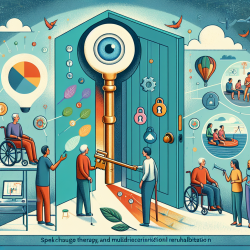The integration of Cognitive Behavioral Therapy (CBT) into DUI programs represents a promising approach to addressing the dual challenges of recidivism and limited access to alcohol use disorder (AUD) treatment among diverse populations. This blog explores the findings from a recent study that evaluated the efficacy of CBT in DUI settings and provides actionable insights for practitioners seeking to enhance their therapeutic skills and program effectiveness.
The Challenge of DUI Recidivism and Treatment Disparities
Driving under the influence (DUI) remains a significant public health concern, with many individuals continuing to engage in risky behaviors even after a conviction. This issue is particularly pronounced among Latino populations, who face higher rates of recidivism and are disproportionately affected by alcohol-related accidents. Furthermore, Latinos often encounter barriers to accessing effective AUD treatment, exacerbating health disparities.
The study titled "Study design to evaluate cognitive behavioral therapy among a diverse sample of adults with a first-time DUI offense" aimed to address these challenges by integrating CBT into DUI programs. The research highlights the potential of CBT to not only reduce recidivism but also improve access to evidence-based treatment for underserved populations.
Key Findings and Implications for Practitioners
- Effectiveness of CBT: The study demonstrated that CBT could significantly improve alcohol-related outcomes, such as reducing heavy drinking days and increasing abstinence rates. Participants receiving CBT showed greater improvements compared to those receiving usual care, highlighting the therapy's potential in DUI settings.
- Addressing Treatment Barriers: By offering CBT within mandatory DUI programs, practitioners can mitigate barriers such as stigma and financial constraints that often prevent individuals from seeking specialty care. This integrated approach ensures that vulnerable populations receive timely and effective interventions.
- Cultural Relevance: The study emphasized the importance of culturally adapting CBT to resonate with diverse clientele. Practitioners should consider incorporating culturally meaningful elements into their sessions to enhance engagement and retention among Latino participants.
Practical Strategies for Implementing CBT in DUI Programs
For practitioners looking to implement or refine CBT within their DUI programs, the following strategies can help maximize impact:
- Training and Supervision: Ensure that counselors receive comprehensive training in CBT techniques and are supported through ongoing supervision. This will help maintain fidelity to the treatment model and ensure consistent delivery across sessions.
- Cultural Competency: Engage with community stakeholders and clients to gather feedback on cultural adaptations that may be necessary. This collaborative approach can inform the development of session content that is both relevant and impactful.
- Focus on Coping Skills: Emphasize coping skills training as a core component of CBT sessions. Encourage clients to identify high-risk situations and develop strategies to manage urges and negative thinking patterns effectively.
- Monitor Outcomes: Regularly assess treatment outcomes using standardized measures such as the Alcohol Use Disorders Identification Test (AUDIT-C). This data-driven approach allows practitioners to track progress and make informed adjustments to their interventions.
The Path Forward: Encouraging Further Research
The integration of CBT into DUI programs offers a promising avenue for reducing recidivism and improving treatment access among diverse populations. However, continued research is needed to explore long-term outcomes, particularly among repeat offenders and non-English speaking clients. Practitioners are encouraged to contribute to this growing body of knowledge by conducting further studies within their own settings.
To read the original research paper, please follow this link: Study design to evaluate cognitive behavioral therapy among a diverse sample of adults with a first-time DUI offense.










